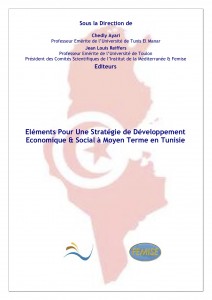Hugues Mingarelli, Advisor in the European External Action Service (EEAS), presented his view on the different forms of cooperation between the EU and the Southern Mediterranean during a PROSMED conference organized on June 3rd, 2016 at the University of Toulon with the support of FEMISE*.

Hugues Mingarelli, Advisor in the European External Action Service, Photo EEAS
What tools can the EU share with Southern Mediterranean countries to promote their integration?
Hugues Mingarelli : The EU can share its experience in the fields of economic and political transition, as well as in regional cooperation. It can also share its expertise to promote freedom of the press, to ensure effective judicial system, to allow holding elections in acceptable conditions, to ensure that human rights are taken into account in police work.
Is the planned Deep Comprehensive Free Trade Agreement (DCFTA) between Tunisia and the EU adaptable to other countries?
Hugues Mingarelli : We must seek tailored solutions for each partner country. The idea of the DCFTA is to break free of the generally low custom duties for existing members of the WTO. For countries that wish to do so, it is also about providing an opportunity of integrating our domestic market by adopting the EU norms and standards. Currently, negotiations with Tunisia and Morocco are ongoing, but if other countries in the Middle East are interested in this kind of approach, that is to say if they are interested by gradual integration into the EU market, then I think they have every reason to discuss with the EU the possibility of such agreements.
How do current events and political changes in the South affect the process of integration?
Hugues Mingarelli: In a number of countries, aspiring to democracy resulted in a stronger desire to benefit from the EU’s experience in democratic transition. But in some countries, such as in Libya, this led to great instability. When volatility reaches a certain level it becomes increasingly difficult to promote the transition and take advantage of what the EU can offer in terms of experience in this field.
What role can civil society institutions such as FEMISE play?
Hugues Mingarelli : We realized long ago that we can no longer solely rely on State to State and on International Organizations to State relations, but it is also very important that the civil society takes its place in the process of political and economic transition. We must continue working in that direction.
* FEMISE participated in this event with the financial assistance of the European Union in the context of the EU-FEMISE project “Support to economic research, studies and dialogue of the Euro-Mediterranean Partnership”.
Interview by Laetitia Moreni, Econostrum.
Subscribe to the Econostrum newsletter at : http://www.econostrum.info/subscription/


